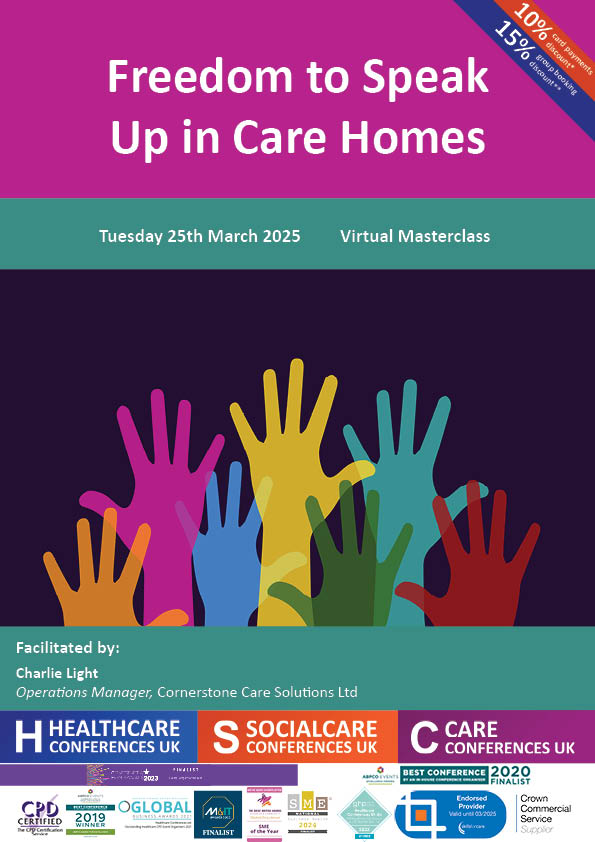The "Freedom to Speak Up" presentation emphasises the critical importance of fostering an open culture within care settings, where staff feel empowered to raise concerns without fear of retaliation. Participants will learn how to support whistleblowers, share best practices, and implement effective procedures for reporting and investigating concerns, ultimately enhancing organisational transparency and patient safety.
The "Freedom to Speak Up" presentation aims to cultivate an open culture within care settings, empowering staff to raise concerns without fear of retaliation. It begins by defining Freedom to Speak Up and emphasising its importance for enhancing users safety and care quality. The presentation will explore strategies for fostering an open culture, highlighting the role of leadership in modelling transparency and establishing multiple communication channels, including anonymous options.
The focus will shift to supporting whistleblowers by ensuring protection against retaliation, maintaining confidentiality, and recognising the courage it takes to speak up. Participants will learn how to share ideas and best practices, facilitating collaboration through workshops and structured feedback mechanisms.
An understanding of whistleblowing will be established, including its legal framework and the types of concerns that may arise. The presentation will detail procedures for reporting concerns, outlining the steps staff should follow and the importance of thorough, impartial investigations. Finally, participants will be encouraged to engage in discussions about fostering a culture that values transparency and promotes continuous improvement, reinforcing the organisation’s commitment to protecting whistleblowers and addressing concerns effectively.
Key Learning Objectives
Understand the Concept of Freedom to Speak Up: Participants will define Freedom to Speak Up and articulate its significance in fostering an open and safe environment for staff to raise concerns without fear of retaliation.
Cultivate an Open Culture: Attendees will learn strategies for creating a culture of transparency, including the role of leadership in promoting open communication and establishing multiple reporting channels for concerns.
Support and Protect Whistleblowers: Participants will explore the organisational commitments necessary to protect whistleblowers, including confidentiality, anti-retaliation measures, and recognition of their contributions to organisational improvement.
Navigate Whistleblowing Procedures: Staff will gain practical knowledge about the steps involved in reporting concerns, from identifying issues to formal reporting processes, ensuring they understand how to document and communicate concerns effectively.
Implement Continuous Improvement Strategies: Attendees will learn how to use insights gained from whistleblowing to drive organisational improvements, enhancing overall patient care and operational efficiency through regular feedback and assessments of the workplace culture.





